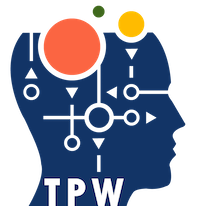In the multifaceted realm of sales, one truth remains consistent: not all sales roles are created equal. Whether it's the intimate
relationship-building of B2B sales or the fast-paced dynamics of retail, each role presents its unique challenges and demands. As such, the competencies required for each of these roles vary greatly. Let's dive deeper into understanding these distinctions and how tools like the SP3D assessment ensure you're hiring the right talent for the right role.
The Diverse Landscape of Sales Roles
- B2B Sales: Business-to-business sales typically involve selling products or services from one business to another. It's characterized by:
- Long Sales Cycles: B2B sales often involve extended negotiation and decision-making processes.
- Relationship Building: The emphasis is on building and maintaining long-term relationships with clients.
- Complex Solutions: Products or services in B2B sales often require comprehensive understanding and customization.
- Retail Sales: This is the frontline of sales, where representatives interact directly with end consumers.
- Quick Decision Making: Transactions are usually fast-paced. - Product Knowledge: It's essential to have an in-depth understanding of the products to address consumer queries.
- Customer Service: Retail salespeople often handle customer concerns, returns, and feedback.
- Insurance Sales: Here, agents are selling insurance policies.
- Trust Building: Given the intangible nature of the product, agents must establish a strong trust base with potential customers.
- Regulatory Knowledge: Insurance sales require an understanding of various regulations and compliance aspects.
- Long-Term Relationship Management: Policies often last for years, necessitating consistent follow-up and service.
Why Each Role Demands Different
Competencies
Given the distinct characteristics of each sales role, it's evident that a one-size-fits-all approach to hiring would be ineffective. For instance: - A B2B salesperson's ability to understand complex client needs might not necessarily translate to success in the fast-paced world of retail sales. - An insurance agent's expertise in regulatory compliance may not be as crucial in a straightforward retail sales scenario.
Thus, recognizing these nuances and hiring accordingly is paramount.
The SP3D Advantage: Tailored Assessments for Diverse Sales Roles
The SP3D assessment stands out as a beacon in the crowded world of recruitment tools. Why? Because it recognizes the diverse demands of various sales roles and offers tailored insights accordingly.
SP3D provides an in-depth analysis spanning ability areas, personality characteristics, and values. More importantly, it offers estimates of a candidate's potential against different sales roles, whether it's Retail Sales, Channel Sales, Insurance Sales, or B2B sales.
By providing a 3-dimensional view of a candidate's profile, SP3D ensures that businesses aren't just hiring salespeople—they're hiring the right salespeople for the specific demands of the role at hand.
In today's competitive business environment, recruitment tools are aplenty. Yet, amidst this plethora, the SP3D assessment shines as an indispensable asset, especially for firms aiming to bolster their sales teams with the best talent. Let's delve deeper into what makes SP3D an unparalleled tool in sales recruitment.
Recognition of Sales' Multifaceted Nature
Sales isn't a monolithic domain. From the bustling floors of retail stores to the strategic boardrooms of B2B negotiations, the world of sales is vast and varied. The SP3D assessment recognizes these intricacies. Unlike generic recruitment tools, SP3D is designed with a singular focus: to help organizations pick the finest salespeople to propel business growth.
A Comprehensive, Three-pronged Approach
The true power of SP3D lies in its tri-dimensional analysis:
- Ability: It's not just about what the salespeople have done, but what they can potentially achieve. SP3D gauges both cognitive and emotional abilities. Whether it's understanding complex product features or empathizing with a client's concerns, the assessment ensures a comprehensive evaluation of a candidate's capabilities.
- Personality: Sales roles often demand resilience, persuasion, adaptability, and a host of other personality traits. The SP3D assessment delves into ten distinct personality characteristics, ensuring that the recruits not only fit the job description but also align with the unique challenges and rewards of sales roles.
- Values: In the modern business landscape, cultural fitment is crucial. SP3D's evaluation of six core values ensures that the selected salespeople resonate with the company's ethos, fostering cohesion and long-term success.
Customized Insights for Varied Sales Domains
Every sales domain has its nuances. Recognizing this, SP3D provides tailored estimates of a candidate's potential across different sales roles:
- Retail Sales: Engaging directly with end consumers, gauging their needs, and providing immediate solutions.
- Channel Sales: Navigating the complexities of distribution channels to ensure products reach their intended market.
- Insurance Sales: Building trust, understanding regulatory frameworks, and selling intangible peace of mind.
- B2B Sales: Crafting long-term relationships, understanding intricate client requirements, and offering tailored solutions.
For each of these roles, SP3D provides a tailored evaluation, ensuring recruiters have a clear picture of a candidate's fit.
With the SP3D assessment, businesses have a potent tool at their disposal. It's not just about filling sales vacancies but ensuring that every recruit is a strategic fit, poised to drive growth. In the intricate dance of sales recruitment, SP3D plays the tune to which successful companies waltz.
In the dynamic world of sales, understanding the unique demands of each role is crucial. Tools like the SP3D assessment, which offer tailored insights and evaluations, ensure that companies can navigate the complexities of sales
recruitment with confidence and precision. As the landscape of sales continues to evolve, having such a nuanced tool in one's arsenal is not just beneficial—it's essential.
